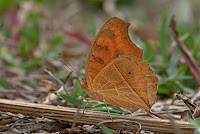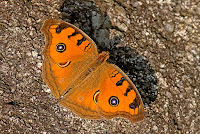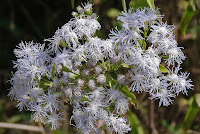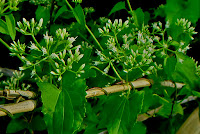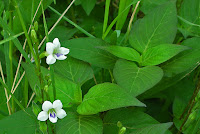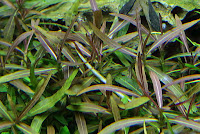<> Junonia almana (Linnaeus,1758) <>
the Peacock Pansy ผีเสื้อแพนซีมยุรา
Click on any photo to see large version
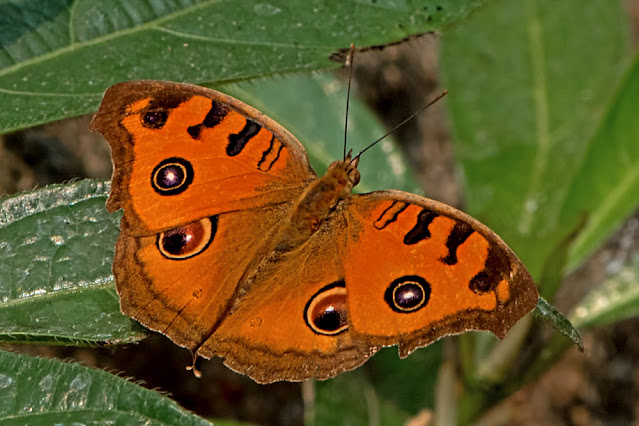
Photo taken at Lamnamkok National Park, Chiang Rai, Thailand. 450m a.s.l.

Found in most countries across the region and even at quite high altitudes in places like Nepal. There is little difference visually between the sexes. The underwing of both sexes can be a little variable. Also, there can be a difference between dry season and wet season populations. This doesn't happen everywhere but where it does the shape of the forewings of the wsf is more rounded at the apex and the colours are paler. It likes sunshine and is usually seen at forest edges and in sunny glades within the forest. Basks with wings widespread in the mornings but tends to land with them closed later in the day. It is quite timid and can be difficult to approach. It has a strong gliding flight. Multivoltine with several broods per annum.
Synonyms and previously used names: Papilio almana, Papilio asterie, Junonia asterie, Precis almana
Taxonomy: Animalia - Arthropoda - Insecta - Lepidoptera - Nymphalidae - Nymphalinae - Junonia - almana
Regional Distribution: India, Nepal, Bhutan, Bangladesh, Myanmar, Thailand, Laos, Cambodia, Vietnam, China, Malaysia, Singapore, Indonesia, Philippines
Habitat: forest clearings, open areas, gardens, and parks up to 4000m a.s.l. Wingspan: 40-55mm
Flight time: all year, depending on location
Life History: egg 3 days instar 1 3 days instar 2 2 days instar 3 3 days instar 4 2 days instar 5 2 days instar 6 4 days pupa 6 days Total egg to adult 22-27 days. All times approximate (instar 6 does not always occur but total time for egg-adult stays about the same).
Larval Hosts: Asystasia gangetica, Barleria cristata, Barleria prionitis, Hygrophila auriculata, Hygrophila erecta, Hygrophila ringens, Nelsonia canescens, Rostellularia procumbens, Ruellia prostrata, Ruellia repens, Ruellia tuberosa, Strobilanthes flexicaulis, Strobilanthes hirta, Strobilanthes japonica, Strobilanthes oligantha, Strobilanthes schomburgkii (Acanthaceae), Phyla nodiflora, Stachytarpheta indica, Stachytarpheta jamaicensis (Verbenaceae), Premna serratifolia (Lamiaceae), Alternanthera philoxeroides (Amarathaceae), Mimosa pudica (Fabaceae), Bonnaya antipoda, Bonnaya ciliata, Craterostigma sessiliflorum (Linderniaceae), Mimulus gracilis (Phrymaceae), Hydrocera triflora (Balsaminaceae), Cenchrus americanus, Oryza sativa (Poaceae), Antirrhinum majus, Plantago asiatica, Plantago major (Plantaginaceae), Corchorus capsularis, Sida cordifolia, Sida rhombifolia (Malvaceae). Hosts used depends upon location and availability of plant species.
Adult Food Sources: Nectar - Duranta erecta, Lantana camara, Phyla nodiflora, Stachytarpheta indica, Stachytarpheta jamaicensis, Stachytarpheta sanguinea (Verbenaceae), Platostoma axillaris. Premna serratifolia, Vitex negundo, Vitex trifolia (Lamiaceae), Mikania micrantha, Elephantopus mollis, Chromolaena odorata, Cosmos caudatus, Sphagneticola trilobata, Spilanthes paniculata, Tridax procumbens (Asteraceae), Cordia cylindrostachya (Boraginaceae), Ziziphus mauritiana (Rhamnaceae), Celosia argentea, Gomphrena globosa (Amaranthaceae), Torenia polygonoides (Linderniaceae), Plumbago auriculata (Plumbaginaceae), Oldenlandia corymbosa (Rubiaceae), Bergera koenigii (Rutaceae), Leea rubra (Vitaceae), Calotropis gigantea, Gomphocarpus physocarpus (Apocynaceae), Justicia procumbens, Ruellia repens (Acanthaceae), Mimosa pudica (Mimosaceae), Terminalia arjuna (Combretaceae). Other - mud puddling, over-ripe fruit, animal dung
Links to other pages in this series for species in the same subfamily
Junonia lemonias
Symbrenthia hypatia
Vanessa indica

